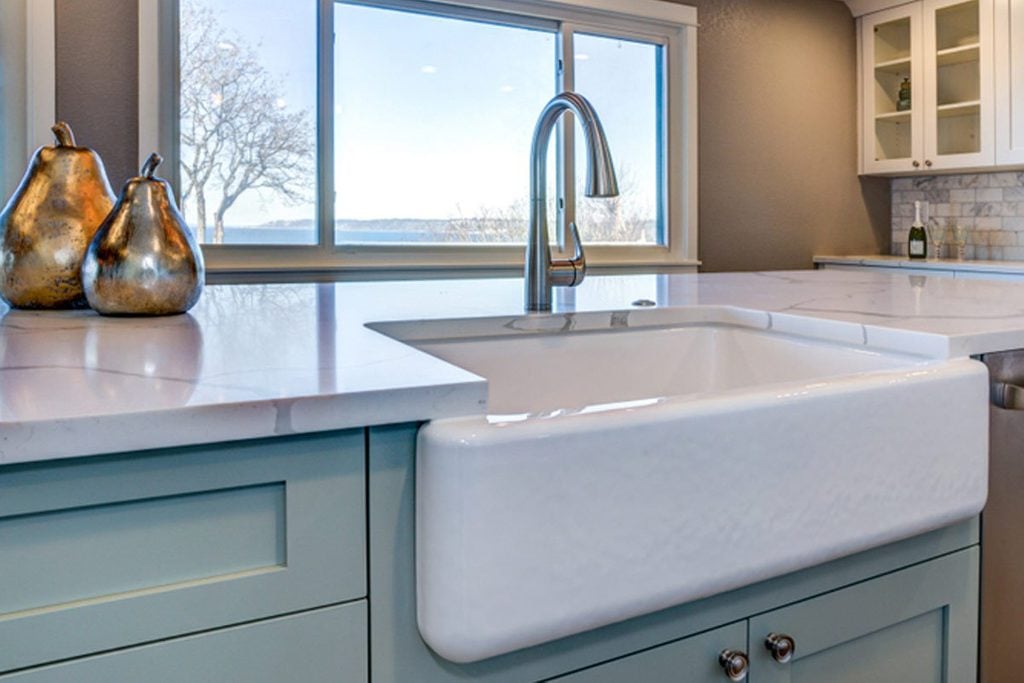Why You Might Think Twice About Installing a White Farmhouse Sink
Updated: Mar. 28, 2019

While farmhouse sinks have become wildly popular, there are some major drawbacks to take into consideration before installing one in your home.
Have you been thinking about installing a farmhouse sink? The trend has exploded in remodeled homes. It offers a sleek look combined with the rustic farmhouse vibe. Along with the aesthetics, these sinks are much deeper and wider than traditional kitchen sinks, allowing you to wash more, clean more, stack more and save yourself from splashing. But while farmhouse sinks have become wildly popular, there are some drawbacks to take into consideration before installing one in your home.
Take a look at these 13 kitchen trends that are on their way out.
Non-Standard Installation and Price
One of the biggest problems is the installation itself. Farmhouse sinks do not have the same footprint as traditional sinks, so you’ll have to redo the surrounding countertops. And a farmhouse sink needs to be installed underneath the countertop to create a seamless transition between the counter and sink. If you’re starting from scratch with your kitchen remodel, this won’t be a hassle, but it’s something to consider if you’re looking to replace an existing sink.
This cost of the sink can also be prohibitive. A cast-iron farmhouse sink costs nearly $1,000 and a traditional double-basin cast iron sink costs less than $400. Also bear in mind that the irregular installation might cost you more.
The Upkeep
Farmhouse sinks also come with some unique upkeep. The design of the sink means there’s no barrier between the lip of the sink and the cupboards and floor below. So every time you splash, you need to be diligent about wiping up—otherwise, you could cause water damage to your nice wood cupboards and floor. (Psst… Looking for the right cleaner to keep your floor spotless? We found it!)
Also bear in mind that white sinks need a little extra maintenance. White cast iron tends to show wear-and-tear and grime more than other materials—think stainless steel—that mask such casualties. Be careful with those heavy pots and be sure to invest in magic erasers to fix any scuffs.
Every product is independently selected by our editors. If you buy something through our links, we may earn an affiliate commission.